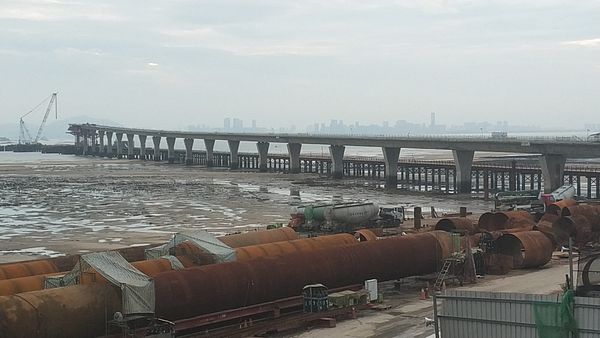A thinking response — Part 1
1. To some extent, it is true, any over reaction by the Americans make them look bad to the Koreans and ASEAN. This makes it easier for China to replace/compete with the US.
The author argues that the current situation is similar to that of the US and Imperial Japan in 1940 and 1941 when FDR began placing sanctions upon Japan. He argues that if the US holds forth on any further racheting up of the pressure and instead builds relationships and consensus with allies and friends within the region, politically, economically etc., that will weaken the hold that the PRC has over them to the point they no longer hold any sway or influence over the region.
2. Not sure if that is correct but if you look back at the history of China and its rise and fall of dynasties, China is its own worse enemy.
(a) The treasure fleet of the Ming dynasty was short interlude before it became inward looking — the country is naturally sea blind — for China reforms at the PAP level is even more important than PLA(N), for regime security and control.
(b) The reforms that Xi is forced to make comes from serious weakness of CCP rule. Don’t get in the way of China doing more harm to itself with its wolf warrior rhetoric. They don’t realise it’s a mistake and we should encourage them to continue to do so. Many countries have banned China’s Huawei and ZTE from their telecommunications networks. And India, Vietnam, Taiwan, South Korea, and Japan are all modernizing their armed forces in response to potential Chinese threats. That way, the other Asian countries will circle their wagons — given the current size of the PLA(N), it is much larger that it needs to be. The USN does not have to agitate them; they will agitate their neighbours — who will then see them as an enemy again.
(c) There was already a strategy to manage China’s rise that Trump abandoned; and the rapid changes at DoD level we see now — is good for the US military — as an organisation, it is much more adaptive and capable of deep thinking about the geography of the Indo-Pacific. The US Marines in particular are out thinking the PLA.
3. American Cold War 2.0 advocates are idiots. If ASEAN has a choice, it then will remain viable as an organisation. ADMM Plus is weak because it lacks support from Indonesia, Japan and US — all aid to the Philippines should be diverted to increase the capabilities of select ASEAN countries (other than Cambodia, Myanmar and the Philippines).
(a) As long as ASEAN is viable, an attack on any ASEAN state, Taiwan or Japan will result in the rapid isolation of China from the international system; given the current stance of Europe and NATO.
(b) An attack on Japan, is an attack on a US ally. Which will tigger an American response. If that occurs, NATO knows that their American ally is under attack. That is why there are limits to Chinese options for esclation.
(c) As the FP article clearly states, today, China’s wolf warriors seem to completely buy into their own narrative that the US is a petulant former superpower too proud to gracefully stand aside while China takes its rightful place at the top of the world. But as China finds itself at odds with more and more countries, often with no connection to U.S. pressure — it is clear that China is the problem. Japan’s
standoff with China over the Senkaku Islands, India’s
actual battle with China in Ladakh—none of these were prompted by U.S. arrogance. Nor was the South China Sea
dispute, which pits China against no fewer than five of its Southeast Asian neighbors.
(d) While trade alone does not prevent war; but an American led trade war can trigger a hot war that those who are sensible in Asia want to prevent. Trump is such an idiot for trying to start a
trade war — with his stupid and failed America First ideas. "The trade war with China hurt the US economy and failed to achieve major policy goals," a recent study commissioned by the U.S.-China Business Council argues, finding that the trade war reduced economic growth and cost the U.S. 245,000 jobs.



